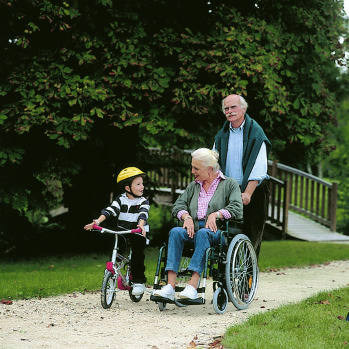Disability Discrimination Act 1995, the parent of modern disability rights law

In November 1995, the Disability Discrimination Act 1995 (DDA) was passed in the UK parliament. What many people do not realise is that, far from being a dry legislative act with little impact on real people, the Disability Discrimination Act was created and passed as a result of years of pressure and activism from disability rights campaigners.
Sick and tired of being treated as second class citizens, disability rights activists began a proactive civil rights movement to demand recognition and rights and reject the narrative of pity and charity that had surrounded them up until that point. Without protection under the law about accessibility in public buildings, equal rights when in education, seeking employment or at work, and equal access to public transport, disabled people could not insist on their right to be treated the same as their non-disabled friends and family. They could request reasonable accommodations, for instance, but had no legal recourse if their boss, for example, said no.
A series of protests began. Disabled people from around the country congregated together and handcuffed themselves to inaccessible buses, blocked roads and lobbied Parliament. The Disability Discrimination Act, however, was not easily won. It took a range of different approaches and attacks and, as well as demanding legal rights and protection, the protests had the result of beginning to change public opinion, too. When disabled people were not presented like poor, pitiful people from charity advertising and, instead, were visible as individuals with opinions and demands and lives of their own, this began to have an effect on public opinion, too. Many people who were non-disabled and did not know any disabled people had never really realised how few rights disabled people had, and began to question the status quo. Some backed the calls for the Disability Discrimination Act 1995 to be brought into law.
It took years of campaigning before the lobbying began to have an impact. As the Disability Discrimination Act was drafted, debated and voted on, campaigners focused their attention on getting it passed through government. But its victory was somewhat bittersweet for campaigners who found that, while many aspects of the law gave them rights, some absolute basics were still missing. For instance, disabled people had won the right to accessible train stations, but not to accessible trains. And, while there was now legal recourse if organisations, educational institutions or employers were discriminatory, many disabled people did not have the means to bring cases in front of the court.
However, what the Disability Discrimination Act 1995 did was still revolutionary for disabled people in the UK. While it was not a perfect law, it was the first of its kind, and it started to build a foundation of legal rights that later became the Disability Discrimination Act 2005 and, eventually, combined with other equality law such as the Race Relations Act as the Equality Act 2010.
The Equality Act 2010 protects people who have protected characteristics (such as being a woman, being from a black or minority ethnic community, being an older person, being a disabled person, or being lesbian, gay, bisexual or transgender) from discrimination in the areas of:
- education, such as school, college or university
- employment, including the process of applying for employment and the right to reasonable accommodations that would enable a disabled person to work
- access to goods, services and facilities, such as visiting restaurants, accessing healthcare, and being able to go to the cinema or the theatre
- buying and renting land or property, so landlords are not allowed to discriminate against potential renters on the basis of their gender, sexuality, race, disability status or age.
There are also rights protected under the Equality Act 2010 for people who are associated with a disabled person. So a carer or parent of a disabled person cannot be discriminated against on that basis, either.
If you need help or advice on disability discrimination law in the UK or abroad, contact your local advice service to see if they can help.







